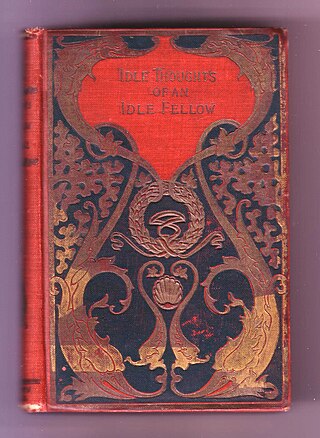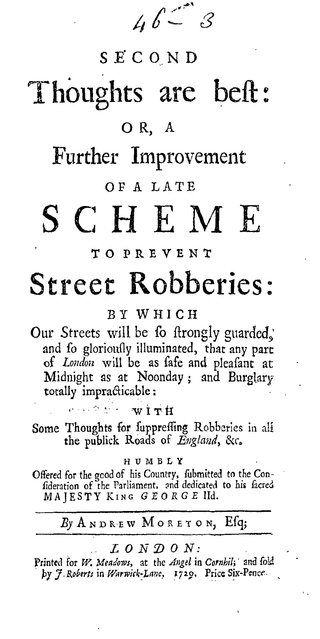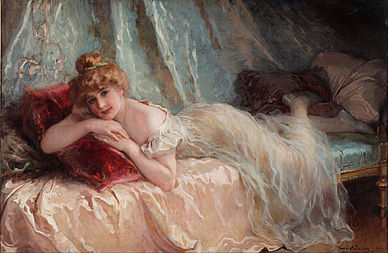A misdemeanor is any "lesser" criminal act in some common law legal systems. Misdemeanors are generally punished less severely than more serious felonies, but theoretically more so than administrative infractions and regulatory offences. Typically, misdemeanors are punished with monetary fines or community service.

The seven deadly sins, also known as the capital vices or cardinal sins, is a grouping and classification of vices within Christian teachings. Although they are not directly mentioned in the Bible, there are parallels with the seven things God is said to hate in the Book of Proverbs. Behaviours or habits are classified under this category if they directly give rise to other immoralities. According to the standard list, they are pride, greed, wrath, envy, lust, gluttony and sloth, which are contrary to the seven capital virtues.

A vice is a practice, behaviour, or habit generally considered immoral, sinful, criminal, rude, taboo, depraved, degrading, deviant or perverted in the associated society. In more minor usage, vice can refer to a fault, a negative character trait, a defect, an infirmity, or a bad or unhealthy habit. Vices are usually associated with a transgression in a person's character or temperament rather than their morality.

Punishment, commonly, is the imposition of an undesirable or unpleasant outcome upon a group or individual, meted out by an authority—in contexts ranging from child discipline to criminal law—as a response and deterrent to a particular action or behavior that is deemed undesirable or unacceptable. It is, however, possible to distinguish between various different understandings of what punishment is.

Temperance in its modern use is defined as moderation or voluntary self-restraint. It is typically described in terms of what an individual voluntarily refrains from doing. This includes restraint from revenge by practicing non-violence and forgiveness, restraint from arrogance by practicing humility and modesty, restraint from excesses such as extravagant luxury or splurging, and restraint from rage or craving by practicing calmness and self-control.

The Nicomachean Ethics is Aristotle's best-known work on ethics, the science of the good for human life, which is the goal or end at which all our actions aim. (I§2) The aim of the inquiry is political science and the master art of politics. (I§1) It consists of ten books or scrolls, understood to be based on notes from his lectures at the Lyceum. The title is often assumed to refer to his son Nicomachus, to whom the work was dedicated or who may have edited it. Alternatively, the work may have been dedicated to his father, who was also called Nicomachus. The work plays a pre-eminent role in explaining Aristotelian ethics.

In the common law of crime in England and Wales, a common scold was a type of public nuisance—a troublesome and angry person who broke the public peace by habitually chastising, arguing and quarrelling with their neighbours. Most punished for scolding were women, though men could be found to be scolds.

Laziness is disinclination to activity or exertion despite having the ability to act or to exert oneself. It is often used as a pejorative; terms for a person seen to be lazy include "couch potato", "slacker", and "bludger". Related concepts include sloth, a Christian sin, and lethargy, a state of lacking energy.
The Importance of Being Idle: A Little Book of Lazy Inspiration is a humorous self-help book by author Stephen Robins. It was published by Prion Books in August 2000 and re-released as a paperback in 2001. Using an alphabetic subject-list format, it presents a collection of essay-extracts, quotations and journal excerpts from a wide variety of writers and thinkers, including Mark Twain, Bertrand Russell, Charles Dickens, and Samuel Johnson. The book describes itself as 'call to arms for would-be loafers everywhere to turn their hands to absolutely nothing whatever', emphasizing the benefits of giving oneself nothing to do in the modern world of stress and long working hours. In the words of James Thurber, "It is better to have loafed and lost than never to have loafed at all".
Public intoxication, also known as "drunk and disorderly" and "drunk in public", is a summary offense in some countries rated to public cases or displays of drunkenness. Public intoxication laws vary widely by jurisdiction, but usually require an obvious display of intoxicated incompetence or behavior which disrupts public order before the charge is levied.
The knight of faith is an individual who has placed complete faith in himself and in God and can act freely and independently from the world. The 19th-century Danish philosopher Søren Kierkegaard vicariously discusses the knight of faith in several of his pseudonymic works, with the most in-depth and detailed critique exposited in Fear and Trembling and in Repetition.

Idle Thoughts of an Idle Fellow, published in 1886, is a collection of humorous essays by Jerome K. Jerome. It was the author’s second published book and it helped establish him as a leading English humorist. While widely considered one of Jerome’s better works, and in spite of using the same style as Three Men in a Boat, it was never as popular as the latter. A second "Idle Thoughts" book, The Second Thoughts of An Idle Fellow, was published in 1898.
The following outline is provided as an overview of and topical guide to the human self:

The house of correction was a type of establishment built after the passing of the Elizabethan Poor Law (1601), places where those who were "unwilling to work", including vagrants and beggars, were set to work. The building of houses of correction came after the passing of an amendment to the Elizabethan Poor Law. However the houses of correction were not considered a part of the Elizabethan Poor Law system because the Act distinguished between settled poor and wandering poor.

Vagrancy is the condition of homelessness without regular employment or income. Vagrants usually live in poverty and support themselves by begging, scavenging, petty theft, temporary work, or social security. Historically, vagrancy in Western societies was associated with petty crime, begging and lawlessness, and punishable by law with forced labor, military service, imprisonment, or confinement to dedicated labor houses.
Convict women in Australia were British prisoners whom the government increasingly sent out during the era of transportation (1787-1868) in order to develop the penal outpost of New South Wales into a viable colony.
In Praise of Idleness and Other Essays is a 1935 collection of essays by the philosopher Bertrand Russell.
Mark Slouka is an American novelist and essayist who was awarded a Guggenheim Fellowship in 2005. He is a frequent contributor to Harper's Magazine.

Second Thoughts Are Best: or, a Further Improvement of a Late Scheme to Prevent Street Robberies is a 1729 pamphlet by Daniel Defoe. He wrote it under the name of Andrew Moreton Esq., presented as a dissatisfied middle-class old man extremely concerned about the increase in criminality around the 1720s.

Critique of work or critique of labour is the critique of, and wish to abolish, work as such, and to critique what the critics of works deem wage slavery.













